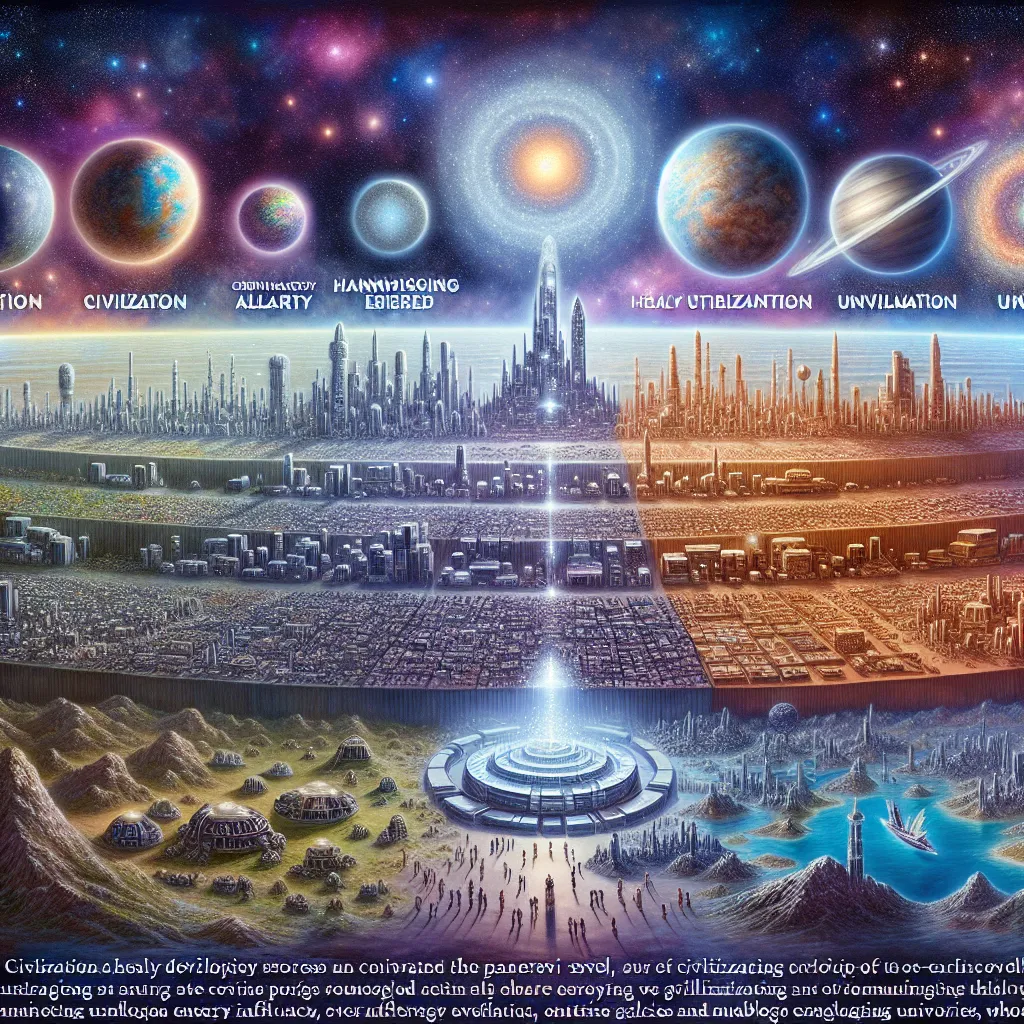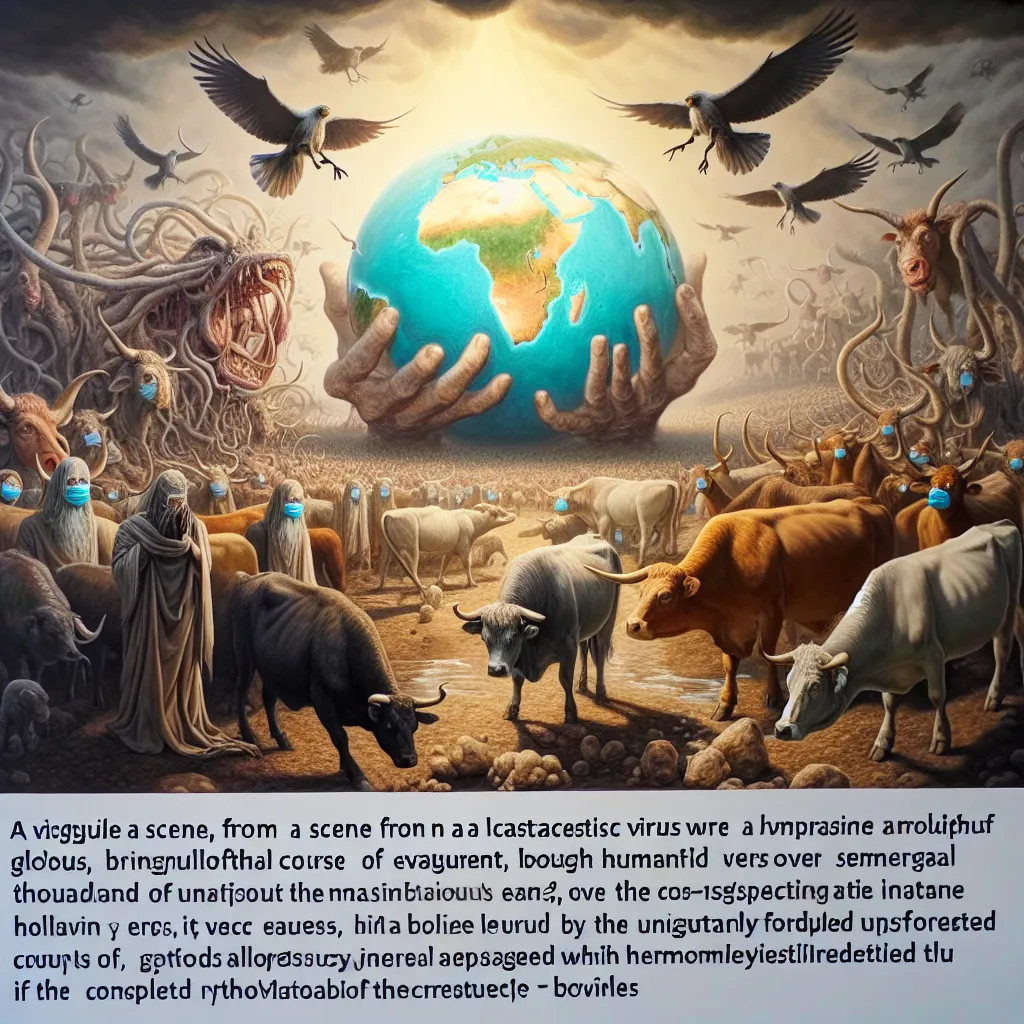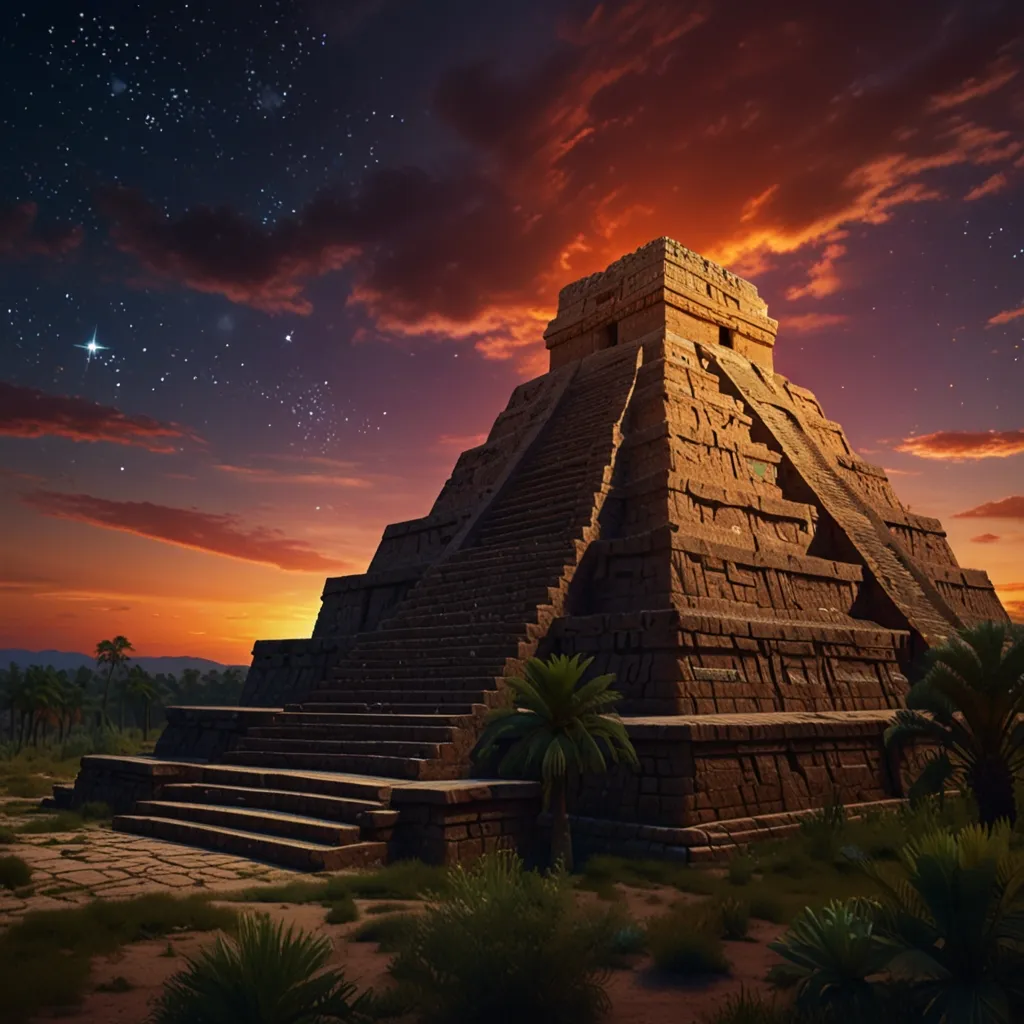Do you ever wonder if there are alien civilizations out there? And if so, how do they compare to us? To even start measuring them, we need some universal laws, and one key way is through their energy consumption. This is done using the Kardashev scale.
So, let’s break this down. The Kardashev scale helps us understand where a civilization stands based on its energy use. It also gives us a framework to tackle big cosmic questions like Fermi’s Paradox. This paradox simply asks: if the universe is packed with advanced civilizations, where is everyone? Seriously, where are they all hiding?
Some researchers at Caltech say alien civilizations might reach a certain technological point and then self-destruct. That’s why we haven’t found them—they’re all gone. Sounds grim, right? But it suggests we might want to rethink making contact with any advanced species.
For a long time, human tech moved at a snail’s pace. But then, bam! The Industrial Revolution happened, and suddenly we were flying planes, landing on the moon, and sending drones to Mars. Given this crazy speed of tech growth, it’s tantalizing to imagine what we might achieve in another hundred years—or even a million.
To compare us to hypothetical aliens, we turn to the Kardashev scale, devised by Nikolai Kardashev in 1964. This scale categorizes civilizations by their energy usage. There are levels—zero through six now—from harnessing the energy of a single planet to manipulating entire universes.
Right now, we humans are around a 0.7 on the scale. We’re on our way to becoming a Type 1 civilization, which means we’d use all the energy available on Earth. Think of all the renewable sources we’re exploring, from solar to geothermal.
A Type 2 civilization would collect energy on a solar system scale. Imagine a Dyson Sphere—a megastructure that could capture energy directly from a star. Believe it or not, scientists are even speculating that something like this could exist around a star named Tabby’s Star.
Now, imagine a Type 3 civilization that controls energy at a galactic scale. They’d have fleets of Dyson Spheres, move planets around, and even create stars. This is sci-fi on steroids.
Kardashev himself didn’t go beyond Type 3, but later thinkers have added more levels. A Type 4 civilization would harness energy on the scale of the entire observable universe. Type 5? They’d jump between universes in the multiverse. Type 6? These would be god-like beings, creating and destroying universes at will.
Given these wild possibilities, it’s no wonder some theorists are nervous about making contact. If any intelligent aliens are out there, they’re probably way beyond us technologically, and that could spell bad news for us if they find us interesting—for our resources, not our company.
While many people are excited about finding alien life, others, like Stephen Hawking, warned against it. Comparing it to the devastation caused by European explorers in the New World, he suggested that if we found more advanced beings, we might be the ones to get wiped out.
So, is it a good idea to search for extraterrestrial intelligence? That’s a question up for debate. But what’s clear is that thinking about such advanced civilizations provides us with a way to reflect on our own future on Earth, and whether we might one day join a larger cosmic community—or share the fate of civilizations that came before us.
If nothing else, the Kardashev scale gives us a lot to ponder about our future. Whether it’s filled with exploration or caution, one thing is certain: the quest to understand our place in the universe is far from over. So, keep your eyes on the stars and your feet on the ground. Who knows? Maybe one day, we’ll discover we’re not alone after all.






